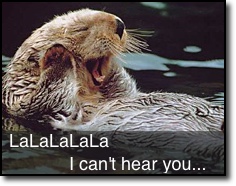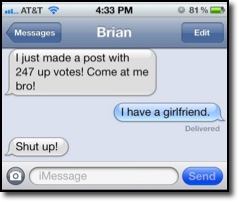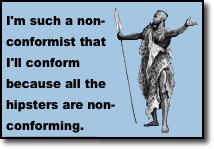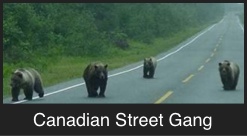 The closer we get to the election, the less I like Facebook. I am so tired of the name calling coming from all sides. I am exhausted from the vicious personal attacks all rendered in the name of one’s political party. I don’t like the pack mentality that ensues in discussing issues. I love the people, I just really dislike most of their affiliations – even my own.
The closer we get to the election, the less I like Facebook. I am so tired of the name calling coming from all sides. I am exhausted from the vicious personal attacks all rendered in the name of one’s political party. I don’t like the pack mentality that ensues in discussing issues. I love the people, I just really dislike most of their affiliations – even my own.
Groups are like that and there is great research that demonstrates they have always been that way. We have just become more sensitive to it with the advent of always connected tools like Facebook and Twitter.
We all need to belong to a group – it is our social nature. The challenge is that groups usually develop a personality of their own, often more extreme than it’s constituents. In social science circles, this is called group polarization, and it has lead to some very dark moments in world history.
Group polarization theory states that groups tend to make collective decisions aligned with the most extreme position of its individual members. Teams that start with a membership of moderate conservatives will, over time, collectively act and represent their membership as being ultra-conservative. People gathered in the name of solving the high school drug problem soon find their teams proposing a zero-tolerance agenda. In other words, the group position no longer represents the average member.
 In a very telling 2009 study centered on group versus individual behaviors, a team of researchers came to the conclusion that “team decisions were more selfish and competitive, less trusting, and less altruistic than individual decisions”
In a very telling 2009 study centered on group versus individual behaviors, a team of researchers came to the conclusion that “team decisions were more selfish and competitive, less trusting, and less altruistic than individual decisions”
Danger comes because people often have to form teams to gain power, but then the team becomes more extreme than the individuals. Now, this new power lies in a more radical position, not truly representing its original founders. Luckily, teams that no longer represent their membership should fall apart and die.
Except they don’t.
 According to social comparison theory, group members are in a constant state of wanting to fit in. Assuming the new party platform is representative of everyone else in the group, members start accepting and adapting to this more radical, less representative, agenda. Over time, individual’s start to move from adapting to adopting, often without realizing it. It’s hard to hold strong to your own position when it appears you are the only one in the group with your belief.
According to social comparison theory, group members are in a constant state of wanting to fit in. Assuming the new party platform is representative of everyone else in the group, members start accepting and adapting to this more radical, less representative, agenda. Over time, individual’s start to move from adapting to adopting, often without realizing it. It’s hard to hold strong to your own position when it appears you are the only one in the group with your belief.
Simply put, groups change people, often without either realizing it.
It’s a vicious cycle.
- A group becomes more extreme than it’s individuals.
- Over time individuals norm to the more radical group position.
- The group then adopts an even more extreme position because of the new norm.
It’s why so many Americans are not satisfied with their party’s beliefs. They feel disenfranchised. It’s why religious group often become more politically radical over time. It’s why people that love and care for pets find it difficult to join PETA or why those that want to care for the planet find Greenpeace an unacceptable answer. It’s nearly impossible for a group of moderates to survive.
 The funny thing is we are all familiar with this behavior. It’s called a street gang – a collection of kids that, as a group, act far more radically than any single individual believes is right. We all know the damage this brings. I mean the street gangs.
The funny thing is we are all familiar with this behavior. It’s called a street gang – a collection of kids that, as a group, act far more radically than any single individual believes is right. We all know the damage this brings. I mean the street gangs.
I’ve never felt that any team I’ve belonged to represented me better than I could as an individual. I absolutely understand and appreciate the need for political, religious, and personal interest groups. There is power in numbers. But that power scares me and research shows that it should scare you as well.
I am Joe Kleinwaechter, and no party will approve this message.






